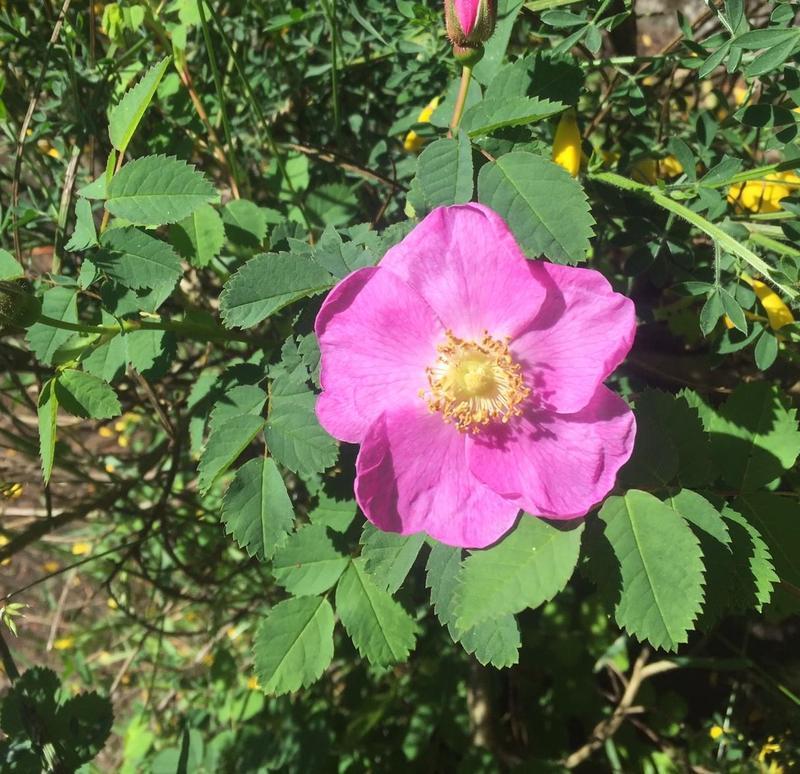Roses and our health: Much more than meets the eye 🌹
Roses and our health: Much more than meets the eye 🌹
Long associated with love, beauty and the heart, the rose is also a valuable herbal medicine. Over the past year or so, I have found myself thinking that just about everyone I come across could benefit from incorporating some rose into their life. Buying a bouquet of roses to uplift your home or workspace, or to brighten up a loved one’s day, is absolutely a lovely option – but there are many other ways to harness the power of roses. Read on to discover the spectrum of rose’s benefits and lots of ideas for incorporating them into your daily life.
There are three parts of the rose plant that are medicinal: the petals, leaves and rosehips. In this article I will be focusing on the petals, as these are generally the easiest to harvest or purchase, tend to be much more affordable than rosehips, and there are so many fun ways that rose petals can be used!
Skin health
Rose petals are known for their anti-inflammatory and antioxidant properties. They contain flavonoids such as quercetin, which help to calm down inflammation and soothe the tissues they come into contact with. Herbalists classify this as an “emollient” action, which means softening and soothing to the skin. Rose petals are also gently “astringent”, which means tonifying. This combination makes rose petals a valuable addition to your skincare routine, helping with redness, irritation, balancing skin quality and enhancing skin appearance overall. In the same way, rose can even be beneficial for remedying sunburns and other minor burns.
You definitely do not need to invest in a line of expensive skincare products to benefit from the skin-healing properties of rose. By infusing a strong tea of rose petals that you strain and transfer into a spritz bottle, you can make a skin toner that can tighten the pores and gently reduce oily skin, while also nourishing and soothing dry sensitive skin. You can even infuse rose petals into almond or jojoba oil that can be added into homemade lotions and creams.
Digestive health
Rose’s anti-inflammatory and astringent properties are just as soothing and tonifying to the lining of the digestive tract as they are to our skin. This means that by ingesting rose in tea or food and allowing it to come into contact with our gut lining, it can exert these helpful actions internally. This makes it potentially useful in cases of gingivitis, heartburn, gastritis, intestinal permeability and diarrhoea. As it is a gentle plant, to address conditions like these rose works best combined with other well-chosen herbs. Nevertheless, taken regularly on an ongoing basis rose can help to provide the conditions for optimal digestion.
A lovely way to get rose in is to add a small spoonful of petals to your cup of tea. Rose pairs nicely with other tasty teas such as chamomile, peppermint or lemon verbena. Strain out the petals before drinking, and you will notice your tea has an extra beautiful aromatic layer. You can also infuse some petals in high-quality honey for up to a week, and then use your “rose petal honey” in hot and cold drinks, baking and drizzled over pancakes.
Rose for the heart
If you have ever literally stopped to smell the roses, you will know what an instant sense of pleasure that brings! Herbalists consider rose to be a “nervine” – the term for a plant that affects the nervous system in some way. Rose is calming and uplifting, and its affinity for the heart makes it a helpful herbal ally during times of grief, loss, heartbreak, loneliness, depression and anxiety – any situation where the heart needs some comforting.
As well as including rose as part of skincare, tea and food as described above, think about other ways you can incorporate rose into your daily rituals. Adding a big handful of rose petals to your bath (or foot bath) is such an easy way to treat yourself, and to calm and revitalise your nerves after a long day. You can also make a linen spray or room spray by making a strong rose tea, straining the liquid and transferring it to a spray bottle. Adding some lavender and lemon balm to the mix can further enhance the uplifting properties.
Considerations for sourcing:
When buying rose petals, make sure to choose organic, and look for petals that are still vividly coloured. When you open the bag, you should be met with a potent fragrance. You can absolutely use domestic roses from the garden, as long as pesticides have not been used. Roses from florists are not suitable. If you are lucky enough to have wild roses growing around you, make sure to harvest from plants away from roadsides and land sprayed with chemicals, and take only what you need. Remember that the roses left on the plant will bring joy to the people walking by, and this too is medicine.
